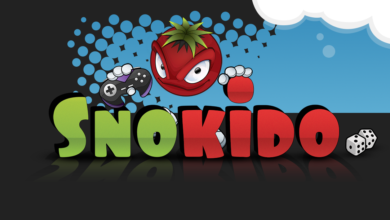Ancient Hero’s Aspect: Unveiling the Legends, Myths, and Timeless Influence

Introduction: The Fascination with Ancient Heroes
Ancient Hero’s Aspect Throughout history, societies have been captivated by the idea of the hero. Whether it’s the legendary tales of Greek gods, Mesopotamian kings, or the immortal figures of Roman and Norse mythology, the concept of a hero has remained a central theme in human culture. These ancient heroes are not just figures of strength or bravery; they embody values, moral lessons, and societal ideals. From ancient texts like The Iliad and The Epic of Gilgamesh to modern retellings in film and literature, the essence of these characters transcends time, offering insight into how people understood heroism and virtue in the ancient world.
The appeal of ancient heroes goes beyond the battles they fought or the monsters they conquered. These heroes represent the virtues that ancient cultures held dear, including loyalty, honor, courage, and wisdom. Today, the “hero” remains a central figure in both literature and pop culture. However, ancient heroes were deeply tied to the values of their civilizations, shaping everything from law to religion. The exploration of the “ancient hero’s aspect” is not merely a study of mythological figures but a way to understand the foundational principles of ancient societies and how they have influenced modern heroism.
The Archetypes of Ancient Heroes
The concept of a hero is not limited to a singular model. In ancient cultures, various archetypes existed, each representing different ideals and narratives. One of the most prominent archetypes is that of the “reluctant hero.” Often, these heroes were not seeking glory or fame, but were thrust into extraordinary circumstances. Ancient Hero’s Aspect Gilgamesh, for example, begins his journey as a reckless and self-centered king but ultimately evolves into a wise and self-sacrificing ruler. This archetype highlights the theme of personal growth and transformation that is central to many hero myths.
Another key archetype is the “tragic hero.” These figures are often marked by a fatal flaw or a doomed fate, which leads to their downfall despite their initial greatness. Achilles, the mighty Greek warrior of The Iliad, is an example of the tragic hero. His invulnerability, save for his heel, symbolizes the fine line between invincibility and mortality. Such heroes emphasize the concept of hubris and the inevitable consequences of defying fate.
The “divine hero” is yet another common figure in ancient mythology. These heroes were often born of both mortal and divine parentage, blurring the lines between humans and gods. Hercules, with his divine father Zeus, is perhaps the most famous example of this archetype. Ancient Hero’s Aspect These heroes are often imbued with extraordinary abilities, and their stories typically involve feats of great strength and bravery, as well as personal sacrifice. Through these archetypes, ancient societies were able to explore the complexities of heroism, showing that greatness often came with significant challenges and flaws.
Ancient Heroes’ Influence on Ancient Societies
Ancient heroes were not just the stuff of legend—they had real-world implications on the cultures that revered them. These figures embodied the ideals and values that societies sought to promote, often serving as models of behavior and guiding principles for citizens. Ancient Hero’s Aspect For example, in Greek society, heroes like Hercules and Theseus were celebrated for their strength, courage, and commitment to justice. These heroes symbolized the values of loyalty and honor that were crucial in Greek culture, particularly in the context of warfare and politics.
In Mesopotamian culture, the hero-king Gilgamesh became a symbol of leadership and wisdom. His epic journey, as depicted in The Epic of Gilgamesh, provided a framework for understanding the relationship between kingship, morality, and the divine. The moral lessons derived from these stories reinforced the idea that a ruler’s authority should be tempered by wisdom and responsibility toward the people. These heroes also served as foundational figures in religion, with many heroes being deified after their deaths or becoming part of a society’s spiritual pantheon.
Moreover, ancient heroes often embodied the ideal qualities that leaders were expected to exhibit, and their stories were used as tools of education. Heroes such as the Roman general Aeneas taught the importance of duty, sacrifice, and loyalty to the state, principles that were deeply woven into the fabric of Roman society. Heroes were not just warriors—they were the embodiment of the ideal citizen, and their stories helped perpetuate the values that defined the culture. Ancient Hero’s Aspect
Symbolism and Mythology Behind the Hero’s Aspect
The symbolism surrounding ancient heroes is as significant as the stories themselves. Many heroes are associated with iconic objects or motifs that signify their powers or status. For instance, Hercules is often depicted with his club and lion’s skin, symbols of his immense strength and victories. Similarly, the sword of King Arthur, Excalibur, is imbued with magic and represents his rightful rule as king of Camelot. These objects are not merely props; they carry deep symbolic meaning, often representing the hero’s connection to the divine or to their destiny. Ancient Hero’s Aspect
Additionally, the hero’s relationship with the supernatural often plays a crucial role in the myth. Many heroes are favored by the gods, receiving divine assistance or protection in their quests. In Greek mythology, for instance, Achilles was blessed with near invincibility by his mother, the sea goddess Thetis. However, these supernatural elements also often lead to the hero’s downfall, as the gods’ favor can be fickle. This connection to divine forces underscores the ancient belief that fate, often guided by gods, was a powerful force in shaping the hero’s journey. Ancient Hero’s Aspect
Mythological heroes also carry lessons through the moral or ethical dilemmas they face. Ancient Hero’s Aspect The challenges they overcome are often symbolic of the struggles faced by ordinary people. Whether it’s the battle against monsters, the quest for immortality, or the fight against fate, these trials represent universal human experiences. By examining the symbolism in ancient heroes’ stories, we gain insight into the values, fears, and aspirations of the cultures that created them.
V. The Lasting Legacy of Ancient Heroes
While ancient heroes may have existed in the distant past, their influence continues to resonate today. The archetypes and narratives surrounding these figures have permeated modern culture, influencing everything from literature to film. Ancient Hero’s Aspect Heroes like King Arthur and Hercules continue to inspire contemporary depictions of heroism. Modern superheroes, such as Superman and Wonder Woman, share many characteristics with their ancient counterparts, such as supernatural abilities and a sense of duty to protect others. The concept of the hero’s journey, popularized by Joseph Campbell, can be traced back to these ancient stories, reinforcing the timelessness of the hero’s archetype.
Moreover, ancient heroes have shaped how we view leadership, ethics, and bravery. The stories of these figures provide valuable lessons in personal growth, the struggle against adversity, and the consequences of one’s actions. The values exemplified by heroes like Gilgamesh and Achilles continue to serve as a blueprint for understanding heroism in a modern context. In a world that faces complex moral and ethical challenges, these ancient heroes remind us of the enduring importance of virtue, sacrifice, and the pursuit of justice.
Conclusion: The Timeless Power of the Ancient Hero’s Aspect
The ancient hero’s aspect is more than just a historical curiosity; it is a reflection of the core values that have shaped human civilization. Whether in literature, religion, or politics, the stories of these heroes offer timeless lessons about courage, honor, and the complexities of the human experience. By examining the myths and legends of ancient heroes, we can better understand the ideals that defined ancient societies and continue to influence our own understanding of heroism today.
As we continue to tell stories of heroes—whether in films, books, or in our daily lives—it’s important to remember that the ancient hero’s aspect is not just about strength and victory. It’s about the choices they made, the lessons they taught, and the timeless influence they continue to exert on how we define what it means to be a hero.




